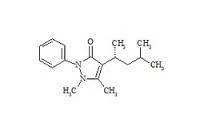- Afrikaans
- Albanian
- Amharic
- Arabic
- Armenian
- Azerbaijani
- Basque
- Belarusian
- Bengali
- Bosnian
- Bulgarian
- Catalan
- Cebuano
- Corsican
- Croatian
- Czech
- Danish
- Dutch
- English
- Esperanto
- Estonian
- Finnish
- French
- Frisian
- Galician
- Georgian
- German
- Greek
- Gujarati
- Haitian Creole
- hausa
- hawaiian
- Hebrew
- Hindi
- Miao
- Hungarian
- Icelandic
- igbo
- Indonesian
- irish
- Italian
- Japanese
- Javanese
- Kannada
- kazakh
- Khmer
- Rwandese
- Korean
- Kurdish
- Kyrgyz
- Lao
- Latin
- Latvian
- Lithuanian
- Luxembourgish
- Macedonian
- Malgashi
- Malay
- Malayalam
- Maltese
- Maori
- Marathi
- Mongolian
- Myanmar
- Nepali
- Norwegian
- Norwegian
- Occitan
- Pashto
- Persian
- Polish
- Portuguese
- Punjabi
- Romanian
- Russian
- Samoan
- Scottish Gaelic
- Serbian
- Sesotho
- Shona
- Sindhi
- Sinhala
- Slovak
- Slovenian
- Somali
- Spanish
- Sundanese
- Swahili
- Swedish
- Tagalog
- Tajik
- Tamil
- Tatar
- Telugu
- Thai
- Turkish
- Turkmen
- Ukrainian
- Urdu
- Uighur
- Uzbek
- Vietnamese
- Welsh
- Bantu
- Yiddish
- Yoruba
- Zulu
نوامبر . 20, 2024 11:08 Back to list
ivermectin injection dosage for pigs
Ivermectin is a widely used antiparasitic agent that is effective in treating a range of internal and external parasites in livestock, including pigs. Its use in swine has become increasingly popular due to its effectiveness in controlling infections that can adversely affect animal health and productivity. Understanding the appropriate dosage and administration of ivermectin for pigs is crucial for both farmers and veterinarians.
The recommended dosage of ivermectin for pigs typically ranges from 200 to 300 micrograms per kilogram of body weight, depending on the severity of the infestation and the health of the animal. This dosage can be administered through various methods, including injection, oral drenching, or in-feed formulations. However, the injectable form is often preferred for its rapid absorption and ease of administration, particularly in larger swine herds.
When using ivermectin injection, it is essential to ensure that the product is formulated specifically for pigs and to follow the manufacturer's guidelines. The injection can be given subcutaneously, usually in the neck area, which minimizes discomfort and potential complications. Swine producers should also be aware of the withdrawal periods required after administering ivermectin before pigs are sent to slaughter, as these guidelines ensure food safety and compliance with regulatory standards.
ivermectin injection dosage for pigs

Ivermectin is effective against a wide range of parasites in pigs, including roundworms, lungworms, and certain ectoparasites like mites and lice. Regular deworming is an integral part of effective herd management, as even low levels of parasitic infections can impair growth rates, feed efficiency, and overall health in pigs. Therefore, incorporating ivermectin into a regular health management program is advisable.
It’s worth mentioning that while ivermectin is highly effective for managing parasitic infections, it's important to avoid overuse or misuse, as this can lead to resistance
. Keeping accurate records of treatments administered can help in monitoring the health of the herd and adjusting management practices when necessary.In conclusion, ivermectin injection is a valuable tool in the preventive health care of pigs. By adhering to proper dosage and administration protocols, farmers can effectively control parasitic infestations, ultimately promoting better health and productivity in their livestock. Always consult with a veterinarian when establishing a deworming program to ensure it aligns with the specific needs of your pigs and adheres to current animal welfare standards.
-
Guide to Oxytetracycline Injection
NewsMar.27,2025
-
Guide to Colistin Sulphate
NewsMar.27,2025
-
Gentamicin Sulfate: Uses, Price, And Key Information
NewsMar.27,2025
-
Enrofloxacin Injection: Uses, Price, And Supplier Information
NewsMar.27,2025
-
Dexamethasone Sodium Phosphate Injection: Uses, Price, And Key Information
NewsMar.27,2025
-
Albendazole Tablet: Uses, Dosage, Cost, And Key Information
NewsMar.27,2025













